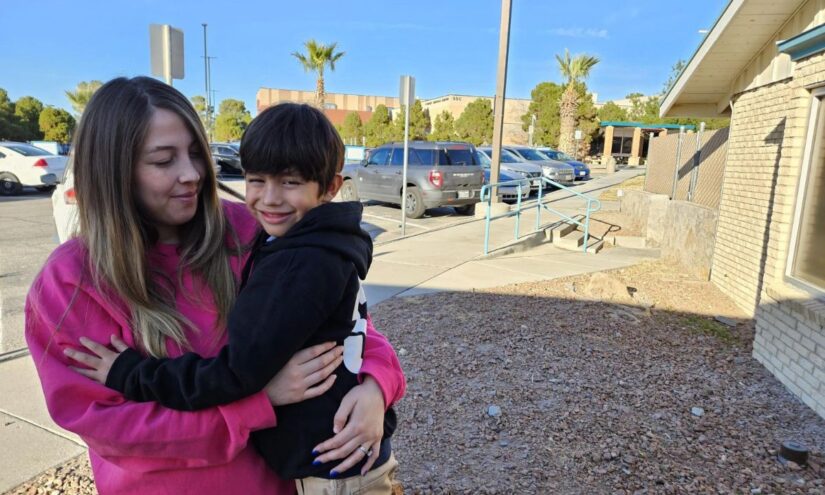During this summer, a team of students from MIT embarked on a journey to the sou …
Texas Students to Benefit from New Family College for Two Generations
Jennifer Livingstone

Michelle Soto understands the challenges of finding affordable child care.
Soto, a mother of three kids ages 7, 6, and nearly 2, is married and also attends math and writing classes at El Paso Community College. She hopes to strengthen her English skills and obtain an Associate of Applied Science degree in court reporting. She attends classes at the Valle Verde campus, while her older children go to Gen. Douglas MacArthur PK-8 School, and her youngest son, Alan, is enrolled in the YWCA Early Learning Academy on campus. Soto prefers to spend time with her family and not attend school on weekdays or weekends, but she is willing to do whatever it takes to complete her degree and start her career.
In response to situations like Soto’s, EPCC has introduced the Family College program for parents who want to continue their education but struggle with child care options. Starting this spring, EPCC students taking courses on weeknights and Saturday mornings at the Valle Verde campus can enroll their children in age-appropriate classes taught by Childrens’ College instructors, free of charge.
Soto, who has already signed up for spring classes, thinks Family College is a fantastic idea and is considering it as an option for the fall semester. She believes it will help students achieve their goals.
For the spring semester, EPCC will offer six 90-minute courses over eight weeks for kids aged 6 to 14. The classes will be held on Wednesdays (reading and Spanish), Thursdays (computer use and gymnastics), and Saturdays (math and modifying their own Minecraft video game). Most courses will take place in Building B, with a few exceptions.
According to research conducted by Higher Learning Advocates, a national policy and advocacy group supporting student initiatives, student parents make up approximately 20% of post-secondary education enrollees, with 43% of them being single mothers. The group also reported that 44% of single mothers attend public two-year institutions.
In a column published in North Texas e-News, EPCC President William Serrata discussed the college’s commitment to empowering student parents. With student parents comprising about 45% of the college’s enrollment, Serrata highlighted various efforts, including resource centers, flexible schedules, and expanded child care partnerships. He also mentioned EPCC’s collaboration with Ascend at the Aspen Institute, which awarded the college a two-year, $75,000 grant to support programs like Family College and provide technical support.
Serrata emphasized that when student parents feel supported on campus, they are more likely to continue their studies and accomplish their educational and professional goals. This, in turn, sets a positive example for their children and fosters a college-going culture that will benefit future generations.
EPCC has begun promoting Family College through flyers, social media, and in-person events, including visits to Ysleta and Socorro independent school districts. Leticia Guerra, the director of Continuing Education and a member of the Family College leadership team, revealed that the decision to create this program was based on a spring 2021 student survey conducted by the Office of Institutional Research. The survey indicated that a significant percentage of students were parents, many of whom were single parents.
Guerra highlighted the importance of making education accessible for student parents so they can attend school while their children receive quality education and care in a safe environment. This program will give student parents peace of mind and allow them to continue their own education.
Sandra Ornelas, an EPCC counselor, knows many students who have been unable to complete their degree plans due to work or family responsibilities. Ornelas, another Family College organizer, believes that this program could have benefited those students by providing them with the flexibility they needed to return and finish their degrees.
EPCC is committed to running this program until the fall of 2024. Program leaders will monitor its success and make adjustments as necessary. Key metrics, such as student enrollment and outcomes, will be assessed to determine the program’s effectiveness. Depending on its success, the program may expand to other EPCC campuses.
Guerra stated that if the program proves beneficial to the community, it will continue to be institutionalized. However, the first step is to evaluate its impact and gather feedback.

